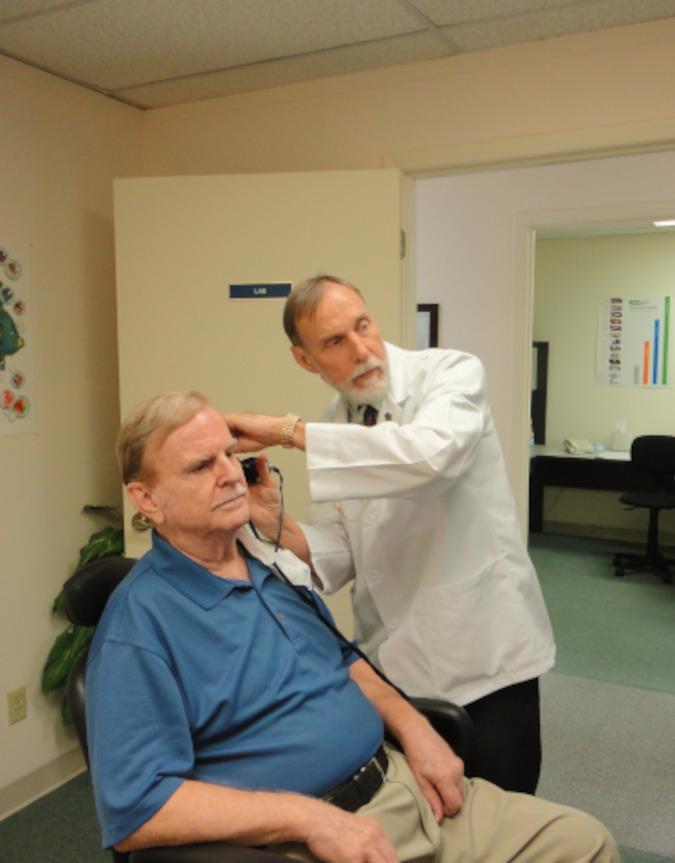
Audiologists develop and administer audiometric tests and examinations using specialized instruments and electronic equipment to diagnose and evaluate the degree and type of patients’ hearing impairment.
Plan and implement habilitation/rehabilitation programs for patients, including selection, fitting and adjustment of amplification devices, such as hearing aids, balance retraining exercises and teaching speech (lip) reading.
Educate and counsel patients and families regarding the nature, extent, impact and implications of hearing loss and treatment.
Establish personalized care plans working as a member of an interdisciplinary team.
Conduct research related to hearing and hearing disorders.
May instruct and supervise audiometric technicians, students and other health care personnel.
Audiologists may work in hospitals, educational institutions, rehabilitation centers, long-term care centers, early intervention programs, research centers and can practice privately. This role works with a multidisciplinary health team of speech-language pathologists, psychologists, pediatricians, social workers, doctors, nurses, teacher and educational assistants, and occupational therapists.
Average Hourly
$35.24
Range Hourly
$29.50 – $50.66
Average Yearly
$68,708
Range Yearly
$57,525 – $98,793
Audiologists and speech-language pathologists (3141)
Amplification audiologist
Audiologist
Audiology clinician
Audiology specialist
Certified audiologist
Certified hearing aid audiologist
Clinical audiologist
Community audiologist
Diagnostic audiologist
Dispensing audiologist
Educational audiologist
Industrial audiologist
Pediatric audiologist
Research audiologist
M.Sc. in Audiology (2 to 3 years usually)
Audiologists must complete a clinical internship before graduation
Average hourly |
Range hourly |
Average yearly |
Range yearly |
$35.24 |
$29.50 - $50.66 |
$68,708 |
$57,525 - $98,793 |
Medium
Employment outlook is Good to Fair in most provinces. More information is available here.
Working as researchers at hospitals, universities or government agencies with further education (PhD) is possible. Managers and supervisors of audiology and speech therapy programs are possible growth options.
1-3 years
A number of universities in Canada offers M.Sc. in audiology. A list of those programs can be found here.
Excellent communication skills; empathetic; ability to work independently; flexible; team player
Registration with a regulatory body is required for audiologists in Newfoundland and Labrador, New Brunswick, Quebec, Ontario, Manitoba, Saskatchewan, Alberta and British Columbia. The list of regulators may be found here. The Canadian Alliance of Audiology and Speech-Language Pathology Regulators (CAASPR) is the national coalition of eight provincial regulatory bodies for the professions of audiology and speech-language pathology and Speech-Language & Audiology Canada is another membership-driver organization that supports, promotes, and elevates the members of this profession across Canada.
Membership in the national association, Canadian Association of Speech-Language Pathologists and Audiologists, is usually required.
In some jurisdictions, audiologists may be required to obtain a separate license to dispense hearing aids.
Probable ways include admission to an M.Sc. program at a suitable university. Some universities such as University of Alberta and University of British Columbia may require certain pre-requisite courses. Some pre-requisite courses can be obtained online. However, some do not require pre-requisite courses, but Dalhousie University requires a Graduate Records Examination (GRE). However, for pre-requisite courses not being required, the M.Sc. in Dalhousie University is 3 years long. For most programs, having volunteer experiences in audiology/speech-language pathology programs/ institutes such as Aphasia Institute, Alberta Aphasia Camp, SAC etc. are extremely valued.